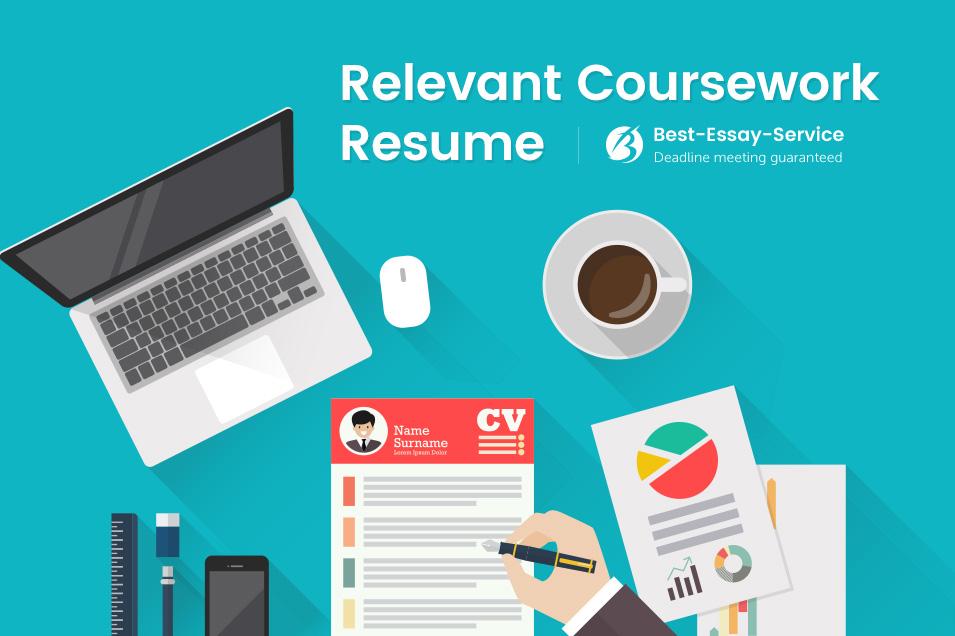

Relevant Coursework Resume
If you are an upcoming college graduate who is looking for a job but does not have much work experience, a relevant coursework resume can serve you well. As you put together your resume, relevant coursework can be used to highlight both theoretical and practical knowledge that you have gained in the course of your studies. But what constitutes relevant coursework? Should your resume include all of your courses? Is it necessary to put your GPA on the resume?
Relevant Coursework Resume Tips
What you should include or not include on your resume is something that is hotly debated. This is especially true when it comes to including relevant coursework on a resume. It is a no-brainer that you would list your current college on your resume (along with your anticipated graduation date if you are still in school), but what other details about your education are important? How much stock would a potential employer put in the information you learned in your classes?
Here are some things to consider when putting relevant coursework on a resume.
Use code first15 and get 15% OFF your 1st order!
What Type of Job Are You Applying For
The first thing to think about is the actual job you are seeking. Some positions require you to hold a specific degree or expect that you have taken certain courses to be considered a candidate. Other positions are less concerned about your specific educational background and will accept applications from anybody regardless of major or courses are taking. Then there are the positions that do not have any educational requirements at all. If you are seeking a job as a way of launching a career (as opposed to, say, a part-time job at a department store) listing relevant courses can make a big difference in your amount of work experience that is otherwise lacking.
How Much Job Experience Do You Have
This part is connected with the first question. Is a prospective employer going to be impressed with your previous work experience, if any? If you are a current or upcoming graduate, the answer is probably no. You have two options if that is the case: send them a resume that is virtually blank or includes relevant coursework to make up for this. A resume that contains almost nothing is not going to be very helpful, so it is time to take a look at your transcripts and make note of the courses that would best demonstrate that you can handle the job requirements. While it does not serve as a perfect substitute for actual, practical work experience, it increases the chances that the human resource manager will overlook the lack of work experience if you’ve shown yourself to be motivated and knowledgeable through your classwork.
Including Relevant Coursework on a Resume
When including relevant coursework on a resume, there are several tips that you should consider:
-
Understand the point of including coursework on your resume.
Putting coursework on your resume is a good way to show evidence of knowledge and abilities when you are lacking actual work experience, but at the same time, it should not merely serve as a way to fill up space. If you include courses that are not related to the position, it might send a negative signal to the hiring manager that you do not understand what the duties and responsibilities of the position entail.
-
Take a look at all of the college courses you have taken or are currently enrolled in.
During your college career, you will end up taking around 35 courses and chances are you will not remember every single one of them by heart. So print out your incomplete transcript and circle all of the classes that are specifically related to the job.
-
Highlight any class projects you have taken part in, research papers, or the like.
Now that you have your list of classes, it is time to think about how you can use them on your resume. For instance, if you are applying for a job related to education policy, have you taken a class that involved an education policy project? If so, that would be immensely helpful for a prospective employer to know. Likewise, if you completed a research paper on a certain topic that aligns with a job position’s work requirements, that is something you would want to include.
-
Do not embellish or make false claims about your educational background.
As you are putting together your resume, you might be concerned about how thin it looks. But this does not mean you should puff it up by including classes you did not take, student organizations that you didn’t participate in, or academic institutions that you didn’t attend. If invited to an interview, you might find yourself in the awkward position of making up stories that the human resource manager will see right through. Instead, as noted in the previous tip, focus on actual accomplishments from courses and internships.
![]()
![]()
![]()
![]()
![]()
![]()

-
Create multiple versions of your resume
If you double major or even minor in a field of study that differs significantly from your major, it means you have taken a pretty broad range of courses. As you look around for jobs, you might find that your well-rounded education opens up opportunities for a wide range of positions. For instance, if your first major were related to human resources while your second major (or minor) is associated with finance, you would have two resumes available for when you apply for jobs connected to each of these fields.
Additional Advice on Creating Your Resume
- If you have a lot of work experience, listing it first on your resume makes perfect sense. But if you have little to no experience, listing your education details takes priority.
- Title the section: Relevant Education and Course Work.
- Your most impressive educational accomplishments should be listed first. For instance, if you hold a master’s degree, you would want to highlight this before mentioning your undergraduate degree. Likewise, rigorous courses and the ones that are most strongly associated with the job position should be listed ahead of the rest. This is true even if those courses are less recent than other courses that you have taken.
For example, you might have graduated with a degree in business administration, but now you are studying for a second degree, this time in information technology. If you were applying for an IT job, you would list this educational experience before your business administration degree.
You don't have to list details such as course numbers, names of the professors who taught the course, or the amount of college credits a particular course is worth. Get to the point and simply list the title of the course.
An example degree and coursework listing on your resume may look like this:
- Bachelor of Arts in Political Science
- The University of Michigan, Ann Arbor, Michigan
- Expected completion date: 04/2019
- Relevant Coursework: Presidential campaigns, Political Behavior, Political Theory
Another example when you want to highlight a course, instead of a degree, might be:
Advanced Econometrics
- Drake University, Des Moines, Iowa
- Expected completion date: 05/2019
- Graduation dates are not important unless you are a relatively recent graduate. If you are currently enrolled in college, you would want to include your anticipated graduation date. Likewise, if you graduated from college three years ago or less, you should include it since it will explain your general lack of work experience. For anything more, the human resource manager will not care when you graduated; they focused on the degree itself.
Unless specifically asked to by a prospective employer, there is no need to list your final GPA on your resume. However, if you graduated with distinction, such as summa cum laude, you would want to include this on your resume. No matter when you graduated, this will always be an accomplishment that impresses the people reviewing your resume.
An example might be:
- Bachelor of Arts in Communication Arts & Sciences, Graduated with distinction
- Penn State University, College Park, Pennsylvania
- Relevant Coursework: Introduction to Honors Thesis
- If you have held an internship, volunteered, or taken part in student organizations, these will be very useful to include on a resume that is light on work experience. If they are not completely relevant to the position, they can still be used to demonstrate your maturity, motivation, and willingness to make a positive contribution to the community. Of course, if you apply for a job at an accounting firm and it just so happens that you interned at an accounting firm, that would boost your odds of landing the job.
Coursework on Your Resume
When you are seeking a job, you might feel reluctant to include information about your college classes on your resume, especially if you are concerned that a prospective employer will see it as nothing more than a filler. But do not worry! If you are fresh out of college and have little or no experience, most prospective employers understand this and will be sympathetic. Instead, they will want to know how you made the most of your time at college. If you can find a way to demonstrate that you excelled in courses relevant to the position, you might very well land that job!
But if you still have not written your coursework, or completed your coursework - ask for help from our coursework service and relax.




